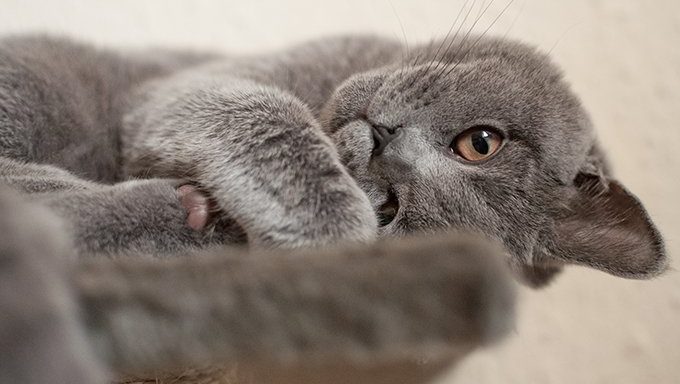Many cat parents prefer a quiet cat, especially those who live in apartments where neighbors might complain about late night yowls and meows.
While many of us are perfectly fine with vocal cats, quiet cats can make pretty lovely companions. Quiet cats are usually also mild mannered and easy to get along with.
If you’re in the market to rescue or adopt a cat, there are many naturally quiet cat breeds that you can look out for in shelters and rescues. However, even if you already have a vocal cat, you can still train your kitty to be a bit quieter.
Here’s what you need to know about quiet cats!
Naturally Quiet Cat Breeds
You can find just about any kind of cat through a shelter or rescue, so keep an eye out for quiet breeds if that’s what you’re looking for. In fact, CatTime’s adoption page lets you search for adoptable cats by breed and location!
Adopt! Don’t shop!
The following cat breeds are known for being particularly quiet:
- Abyssinian
- American Curl Cat
- American Shorthair
- Bengal
- Birman
- British Shorthair
- Chartreux
- Cornish Rex
- Exotic Shorthair
- Havana Brown
- LaPerm
- Norwegian Forest Cat
- Persian
- Pixie-Bob
- Ragdoll
- Russian Blue
- Scottish Fold
- Siberian
- Singapura
- Somali
This is by no means an exhaustive list of quiet cats, but it is a good start if you’re looking to adopt a quiet cat. Keep in mind that cats have different personalities, and just because they’re typically a quiet breed doesn’t mean that they’ll turn out to be less vocal.
Maintaining your cat’s good health, providing enough mental stimulation, and giving them attention are all important factors for keeping your cat calm, quiet, and happy, no matter which breed they might be. And even cats not listed above can learn to be less vocal with the right training!
Training Your Cat To Be Quiet

You may be all-too-familiar with an early morning yowl that comes from your vocal and hungry cat. If your cat is too loud or disruptive, there are ways to train them to be quiet.
Before training your cat to be quiet, you should check with your cat’s veterinarian that the excessive meowing or yowling isn’t a sign of a health issue. Cats who are typically quiet may become vocal if they’re in any sort of pain.
Older cats who suffer from hearing loss or lose some of their cognitive functions may also grow less quiet as the years go on.
Training your cat to be quiet requires a lot of patience, but it is possible. If your cat is meowing or vocalizing excessively at an unwanted time, do not give them attention or acknowledge them.
Yes, it is tempting to give a loud cat food just so they will stop bugging you, but that will only reinforce the behavior.

Many cat trainers advocate clicker training to help cats learn how to be quiet. The simplest way to do this type of training is to use a clicker any time your cat is quiet and immediately offer them a reward.
Your cat will start to associate being calm and quiet with yummy treats, and the unwanted behavior should cease after some time.
It’s important with any sort of training to stick to it. Any lapse in training will have your once quiet cat meowing and yowling all over again. Cats, after all, continue meowing after kittenhood in order to communicate with their humans.
By showing your cat that their loud behavior will not get them what they want, they will begin to quiet down and let you sleep past five in the morning.
Do you have a naturally quiet cat? Or have you trained your loud, vocal cat to be quieter? Let us know and share your training tips in the comments below!









